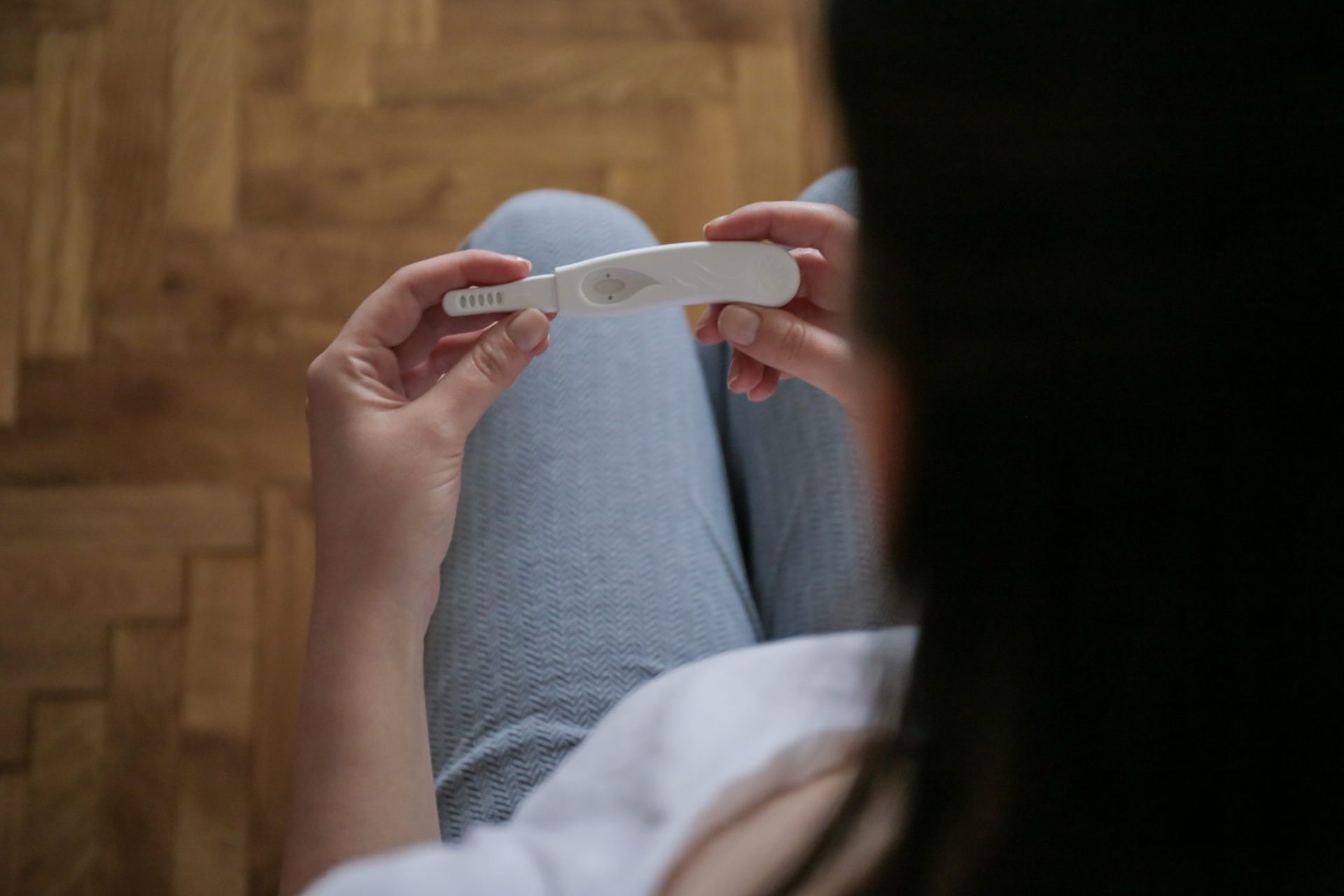Written by Natalie Gil
Are you worried that anxiety may prevent you from getting pregnant? You’re far from alone. Medical experts explain what we know so far about the relationship between stress and fertility; and what can be done to help.
When 31-year-old Lucy* and her husband started trying to conceive, she assumed her body would “get the message and respond accordingly,” even after years of trying to do the opposite.
“I went through phases of impatiently assuming that because I hadn’t immediately conceived, there must be something wrong with me,” she says. The worry was compounded by her history of disordered eating and heavy drinking throughout her 20s. Equally anxiety-inducing was thinking about the extent her life would change if she got pregnant.
It was exercise and opening up to friends about their difficulties conceiving that eventually assuaged her worries and finally made her relax about the process. “When I stopped thinking about it regularly, stopped checking my period tracker app every day and gave myself up to it, I got pregnant almost immediately,” she says.
“I’m not saying there was any cause and effect, but I do think that stress and anxiety are the opposite of the things your body needs to feel before it allows itself to get pregnant. It’s obviously not a cure-all, and easier said than done, but listening to your body, believing in it and what it can do and accepting that you cannot control it with your mind alone all really helped me.” Their baby is due next spring.

Trying to conceive can be stressful, particularly if you’re aware of conditions affecting your fertility, are undergoing IVF treatment or have miscarried in the past.
It’s common for people experiencing infertility to have higher levels of stress and anxiety, and thankfully the stigma around it is slowly but surely falling away. But could stress, worry and anxiety themselves affect the likelihood of getting pregnant?
What does science say?

“Many women worry that stress and anxiety will impact the chances of conceiving, and this has been the subject of intense debate over recent years,” says Adam Balen, Professor of Reproductive Medicine and Surgery at Leeds Fertility and spokesperson on reproductive health for the Royal College of Obstetricians and Gynaecologists (RCOG). “Stress leads to increase in the hormone cortisol and high stress and elevated cortisol can cause anxiety, so the two things are linked.”
It’s difficult to study whether or not stress, worry and anxiety cause infertility because studies tend to rely on self-reported stress. We aren’t very good at judging our own stress levels (particularly if we’re used to being stressed), or remembering exactly how something made us feel after the event, he says.
“Though there is still controversy, one popular narrative in the fertility sector at the moment is that stress and anxiety do not lead to difficulties conceiving either naturally or via IVF, rather that infertility causes stress,” Professor Balen explains. “This is based on high-quality research by psychologists who have failed to find an association between self-reported stress and IVF outcomes.”
He cites a meta-analysis of 14 studies published in 2011 which concluded that emotional distress does not reduce the chances of pregnancy. However, a conflicting meta-analysis from the same year found a small but significant link between stress and a reduced chance of conceiving – so the evidence isn’t conclusive.

Professor Geeta Nargund, Medical Director of CREATE Fertility, flags a paper from 2018, which suggested that recent studies found pregnancy rates to increase when psychological distress was lowered through treatment. But she concludes that, “At present there isn’t any direct evidence to show that anxiety causes infertility. More work needs to be done in this area to determine if there is a direct link.”
Professor Balen suggests there could be a difference between the impact of short-term versus long-term stress on conception rates. Recent research from the University of Nottingham investigated cortisol levels (an indicator of stress) laid down in hair grown in the three months prior to fertility treatment – and found that increased cortisol was indeed associated with reduced IVF success.
Based on this, Professor Balen suggests that “more long-term stress can impact fertility, perhaps contrasting to the more short-term stress reported around the time of IVF treatment in many studies conducted by psychologists.”
How might anxiety affect conception?

While it’s still unclear whether or not worry, stress and/or anxiety do affect conception rates, there are numerous explanations for how the body might react in this situation. “It is well known that the increase in cortisol levels triggered by stress can negatively affect many different aspects of health,” Professor Balen explains.
“The numerous physiological manifestations [of stress] include an impact on the gut microbiota (the balance of natural bacteria in the gut), thyroid and immune function and hormones including increased cortisol levels, as well as elevated inflammation, all of which have the potential to impact reproductive function, including implantation of an embryo into the womb.”
How do you know if you’re anxious?
If you’re struggling to conceive and unsure why, it’s worth assessing how you truly feel. “Many of us are so used to being stressed and anxious that we’re pretty bad at recognising how anxious we actually are,” says Grace Dugdale, Reproductive Biologist at Balance Fertility and co-author of The Fertility Book (published in June 2021) alongside Professor Balen.
Some telltale signs of anxiety, she adds, include a racing heart, insomnia, difficulty relaxing, digestive problems, avoiding situations that may trigger anxiety, an inability to concentrate and/or poor mental focus and over-thinking/ruminating on problems and fears.
What can you do if you are in this situation?

Some degree of stress is inevitable – but the important thing is taking steps to reduce the effects in the body, Dugdale says. “This is especially true when it tips into anxiety.”
It’s important to first reduce “avoidable or very significant stressors” where possible, she says. “For example, if there is serious conflict in your wider family or friendships and contact depletes you emotionally, recognise the source of this stress and try to manage boundaries and contact so that you don’t feel this as a constant.”
Secondly, there’s the chronic ongoing stress that may be seriously affecting your life, Dugdale adds. “This may be a career where you routinely have to work excessive hours in a high-pressure environment and travel to different time zones, throwing out your body clock.”
To mitigate the health impact of anxiety and stress, she recommends activities that might help, including: meditation, yoga, regular exercise and journaling (one for negative thoughts and another for what you’re grateful for).
Having a set time to discuss worries, anxiety and difficult feelings with your partner, or someone you trust can also be helpful, as is eating a nutritious diet, and developing an awareness of your negative thoughts.
“See a counsellor or therapist, or talk to your GP if anxiety is disrupting your day to day life – getting support is important,” Dugdale concludes. Nargund also recommends patient support groups, “as talking to others going through the same process ensures women don’t feel alone in their experience”.
She continues: “There is no doubt that fertility and general health are closely intertwined. Improving your general health through lifestyle changes, such as taking up exercise, giving up smoking, optimising body weight and eating healthily can all help to boost your fertility.”
Partners have an equally important part to play

For women and men, taking steps to optimise physical and mental health before trying to conceive can help improve the chances of having a healthy pregnancy and a healthy baby.
“The lifelong health of the child starts before conception via environmental influences on egg and sperm cells,” Dugdale says, highlighting a series of papers in The Lancet in 2018 on preconception care. “Men can often be forgotten but they experience significant stress as a result of difficulties conceiving and are often less likely to talk about it or seek support.”
Professor Balen provides some reassurance: “While it is natural for couples to feel stressed if they are taking a long time to conceive, it is important to try to stay positive and care for each other.” Since the ‘fertile window’ or fertile time in the cycle lasts about five days, he recommends having “regular sex through the cycle and at least every couple of days until after you’ve ovulated, which is usually two weeks before your next period. Long gaps between ejaculations is bad for sperm and so regular sex is important.
“Some couples with fertility problems have sex less frequently because of the stresses of ‘doing it to order.’ Try not to worry about using ovulation monitors and keep things as natural as possible.”
Do you suffer from anxiety? You’re not alone. Seek confidential help and support with Mind or the NHS. The NHS can also help with fertility issues, while Mind can provide support for maternal mental health.
*Surname withheld
Images: Getty
Source: Read Full Article